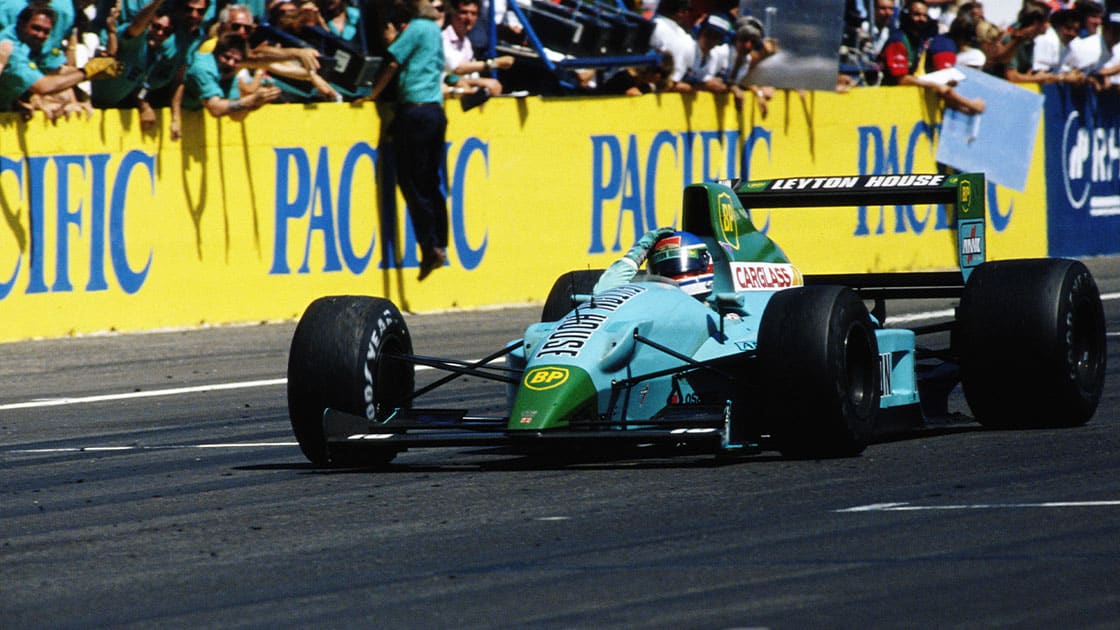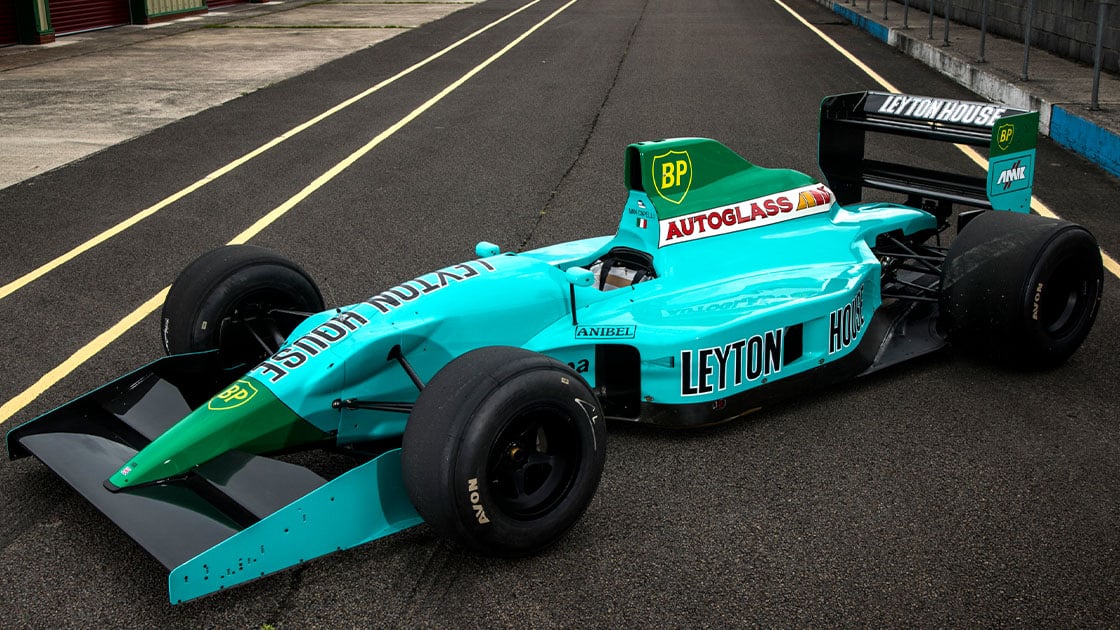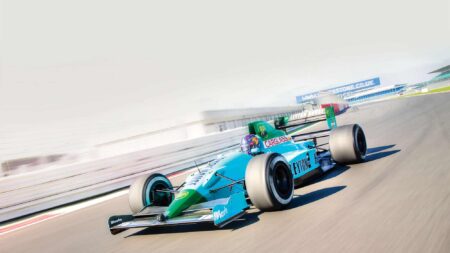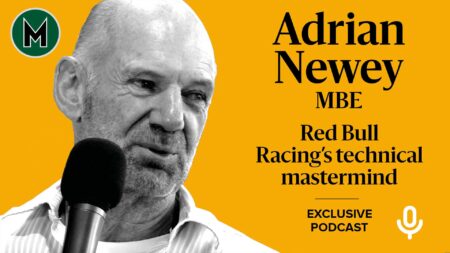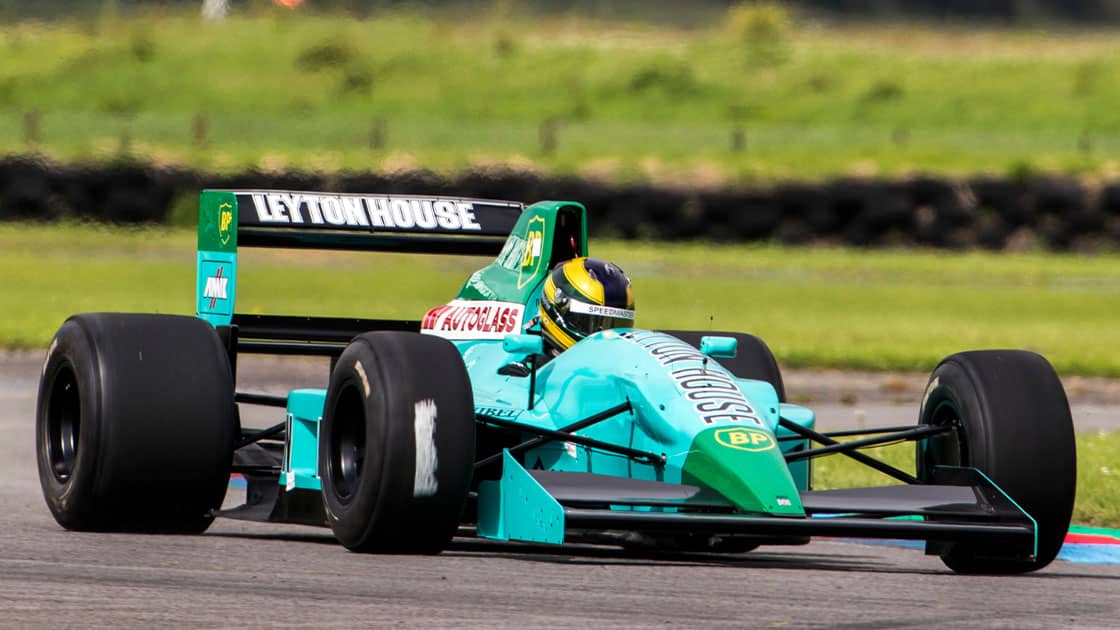Lindstedt is now open to selling chassis No6, one of the cars used in the latter part of 1990, through Speed Master which helped guide its restoration, but he says it will only go to the right person, for the right price. In the meantime he wants to have as much fun driving it as possible.
Lindstedt’s band ‘Keegan’ rubbed shoulders on tour with Iron Maiden and other heavy metal luminaries at its peak in the ‘90s, but the Swede’s passion for racing led him into the ownership of this seminal racing machine.
First campaigning GTs to success at local level in the 2000s, Lindtsedt wanted more – but didn’t quite know what he was letting himself in for.
“I met a racing driver from Sweden in 2012 that had a couple of Formula 1 cars and was interested in my GT2 Porsche,” he says.
“I love innovators like Chapman and Newey, they’re my heroes. So we made the deal, I bought the Leyton House and thought ‘Wow, my team can easily renovate this car.’ Yeah right!”
Realising he might have bitten off more than he could chew in trying to restore a rare grand prix prototype, Lindstedt eventually had to scour the globe for both expertise and physical parts, first heading to one of motor sport’s heartlands.
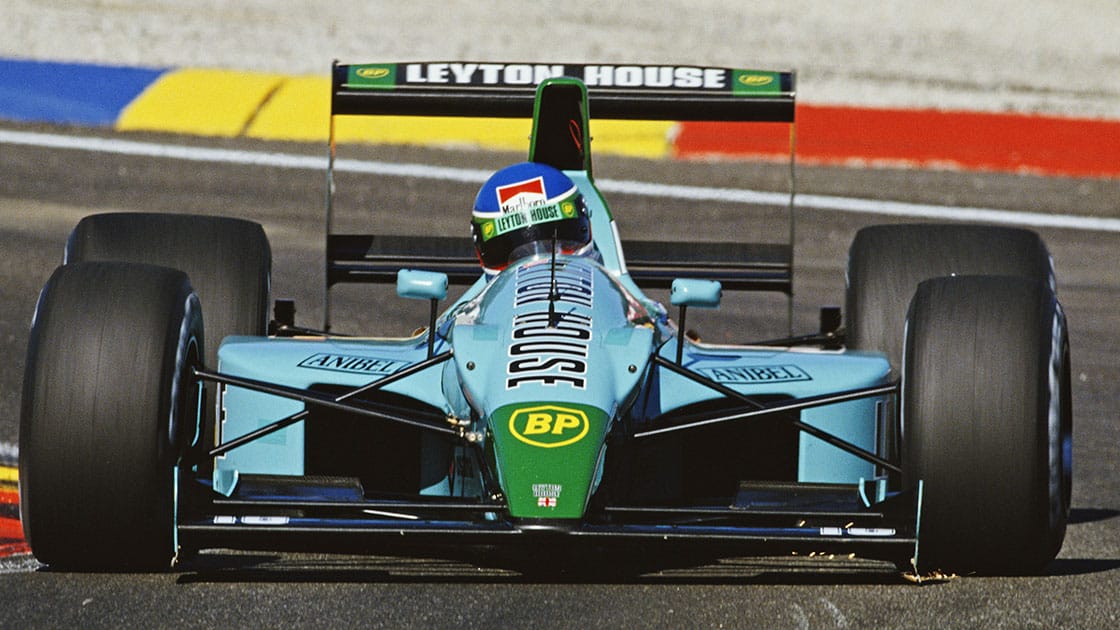
Car became an isntant cult classic thanks to efforts of Newey, Capelli and co
Getty Images
“I went to the UK and got in contact with Chevron racing, so they started the project, but unfortunately the guy handling the car actually died quite young. Chevron then recommended CGA Race Engineering.
“I realised F1 cars are even more complex than I had imagined! We decided very early on: no compromises. It doesn’t matter what it costs, it has to be perfect. You start to understand that nothing can come off the shelf – everything has to be special, special, special.
